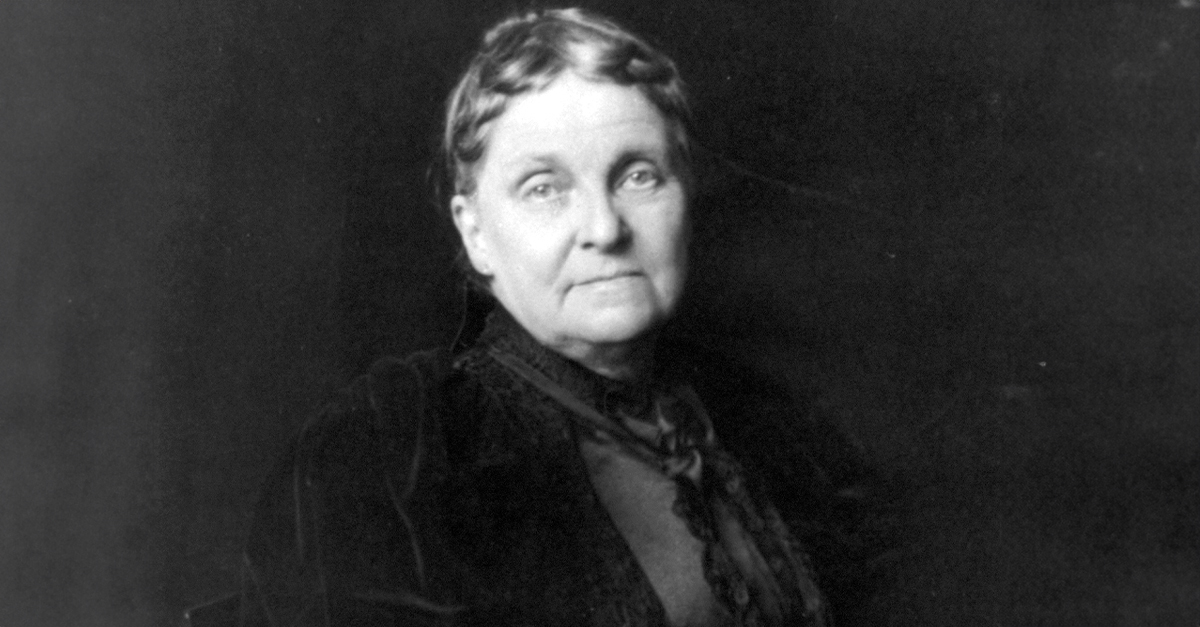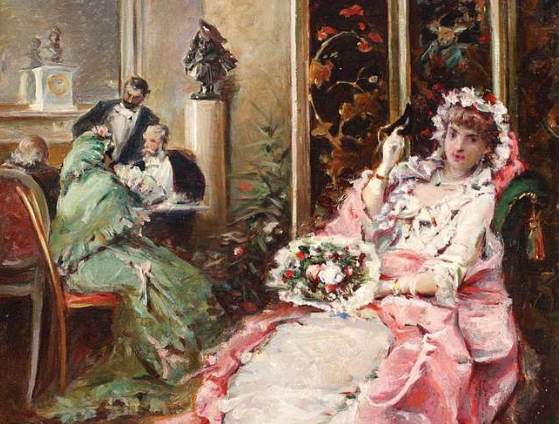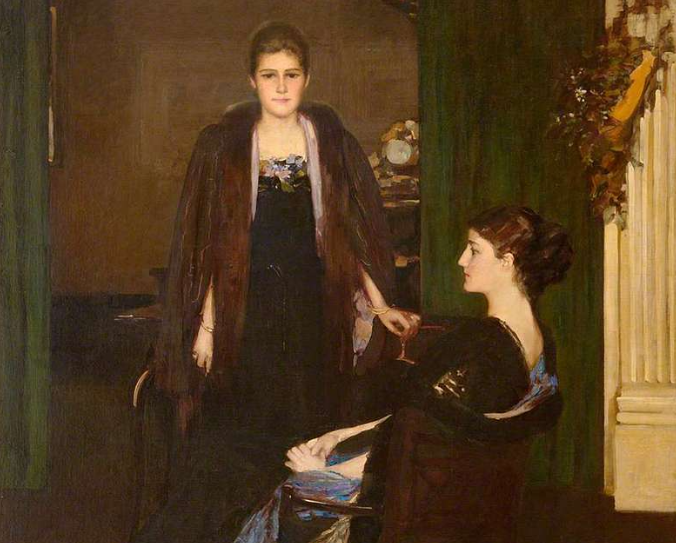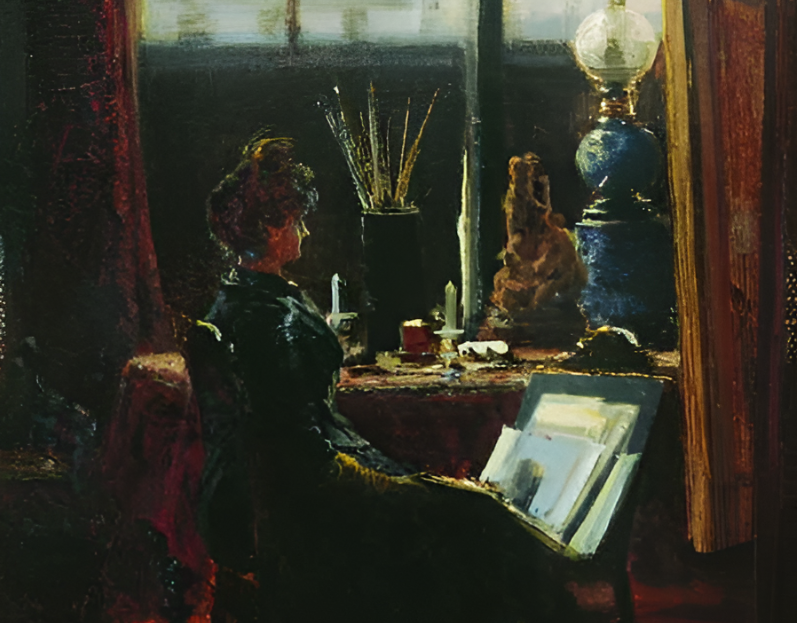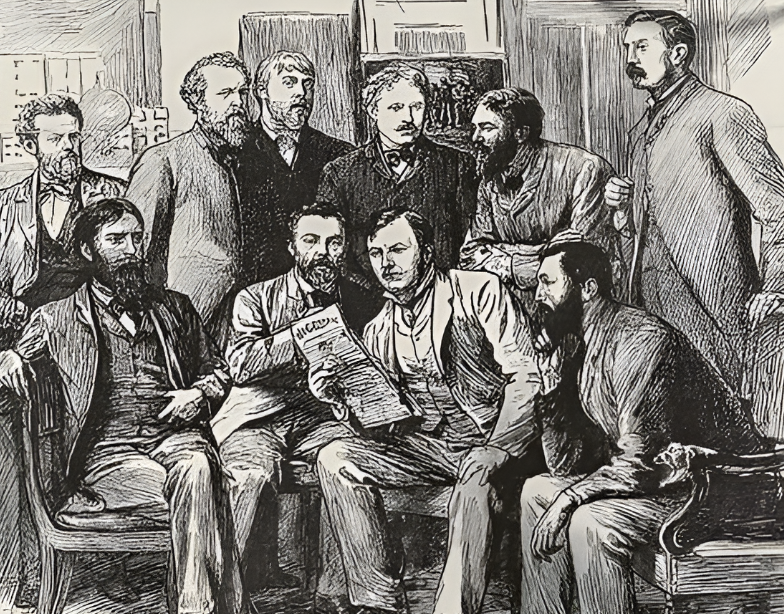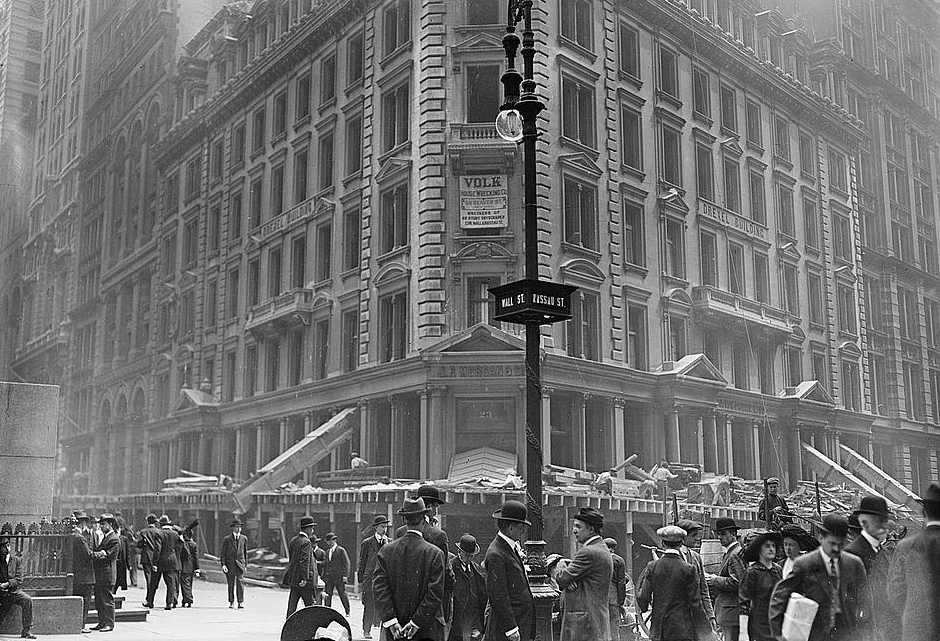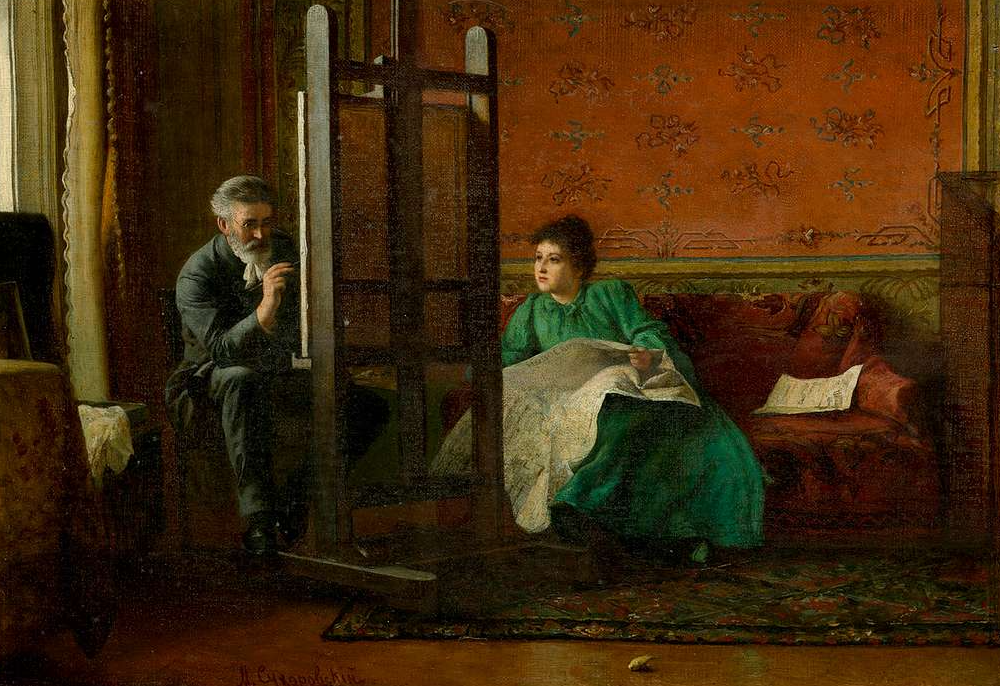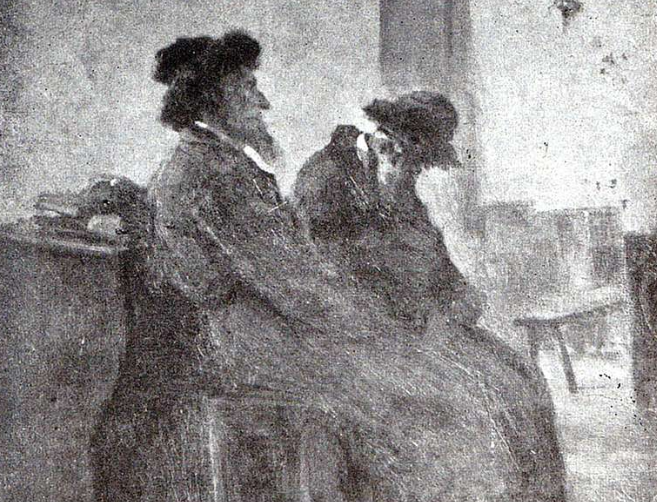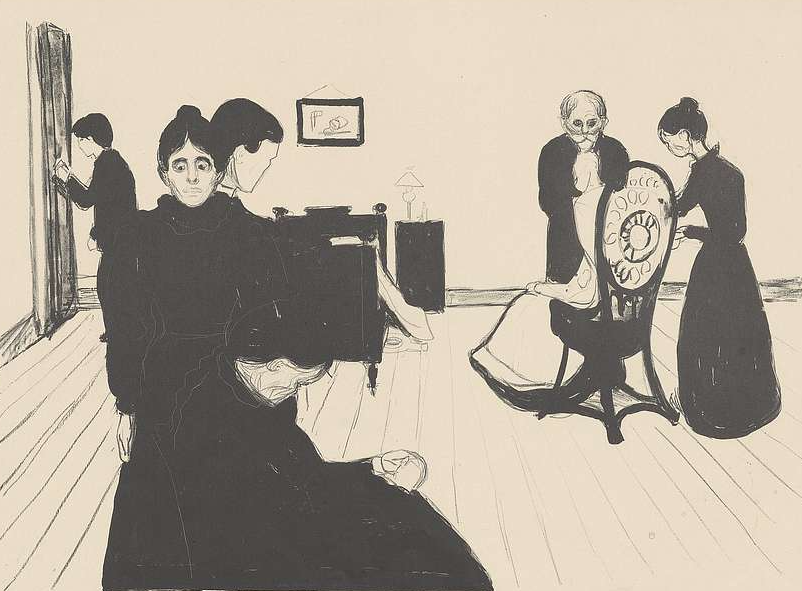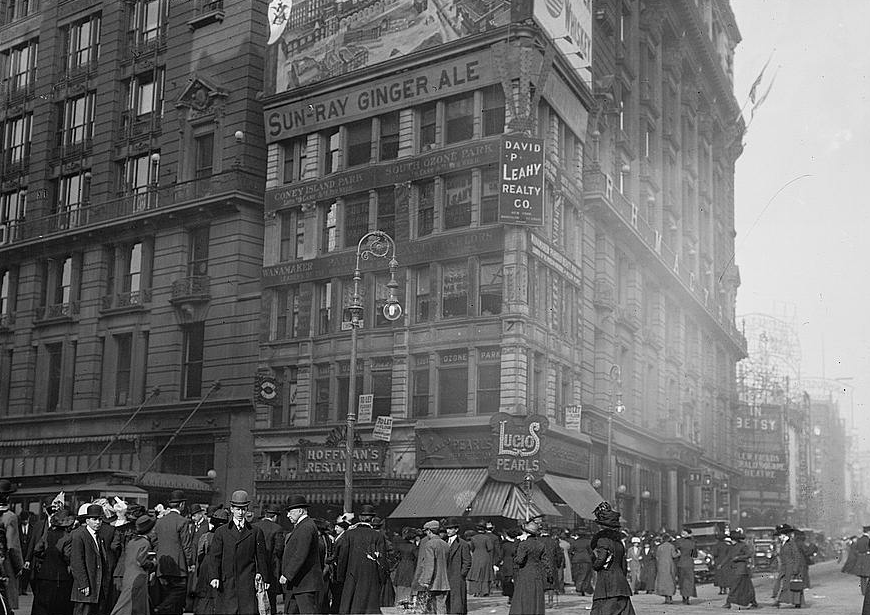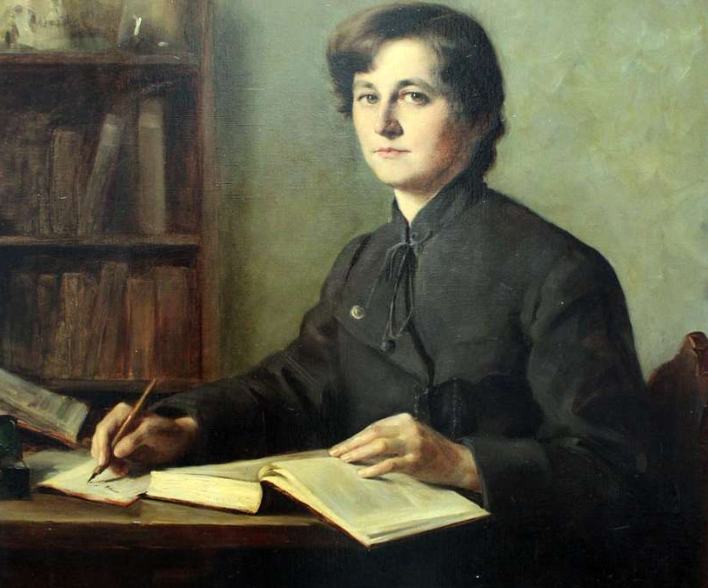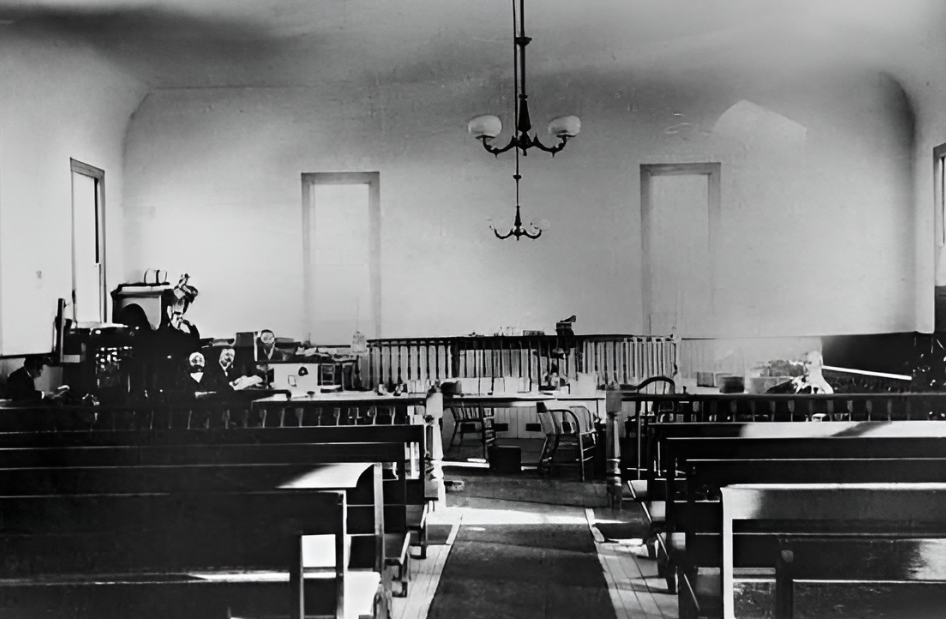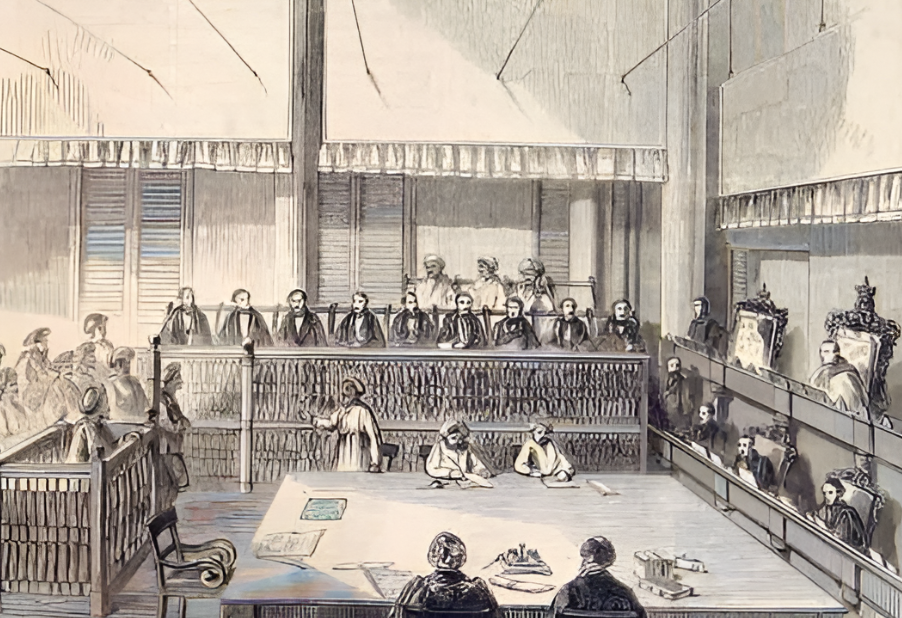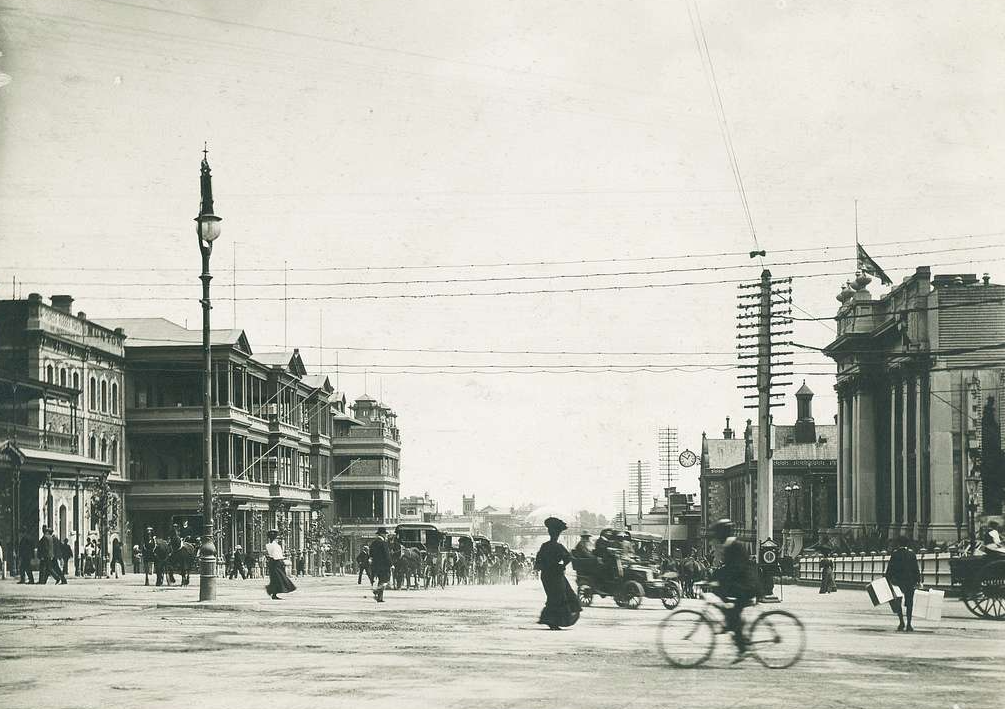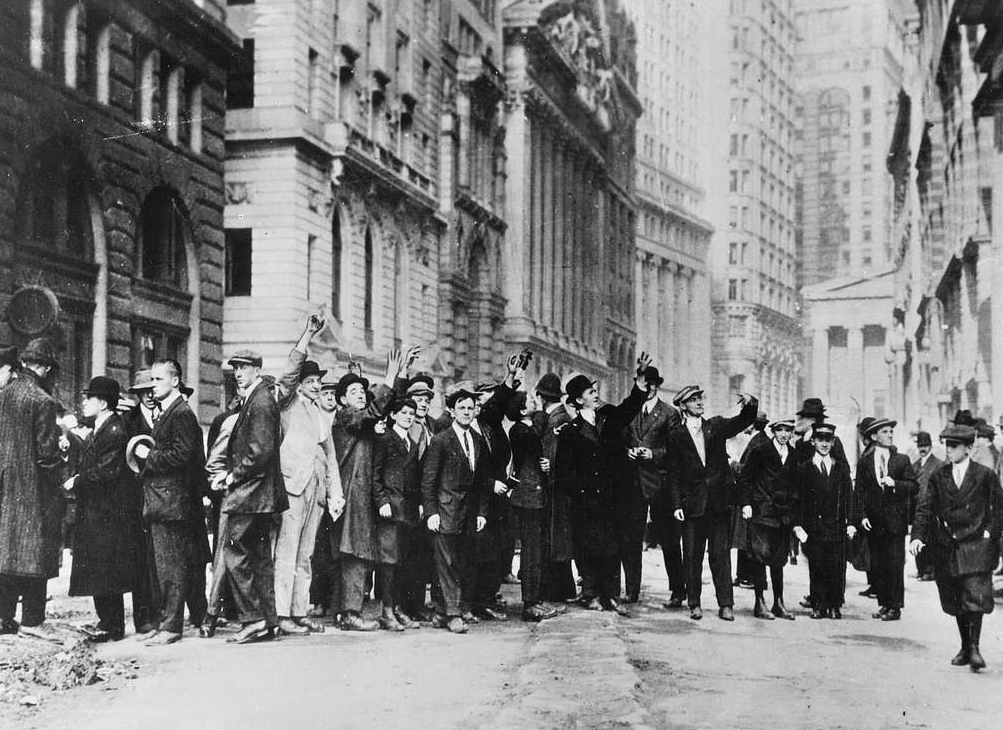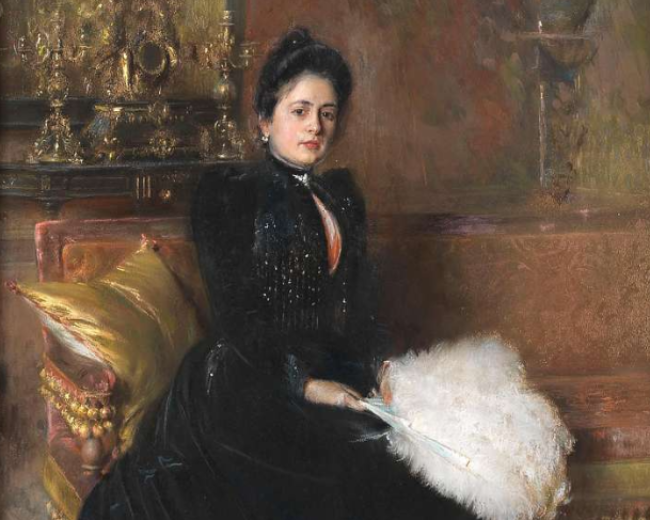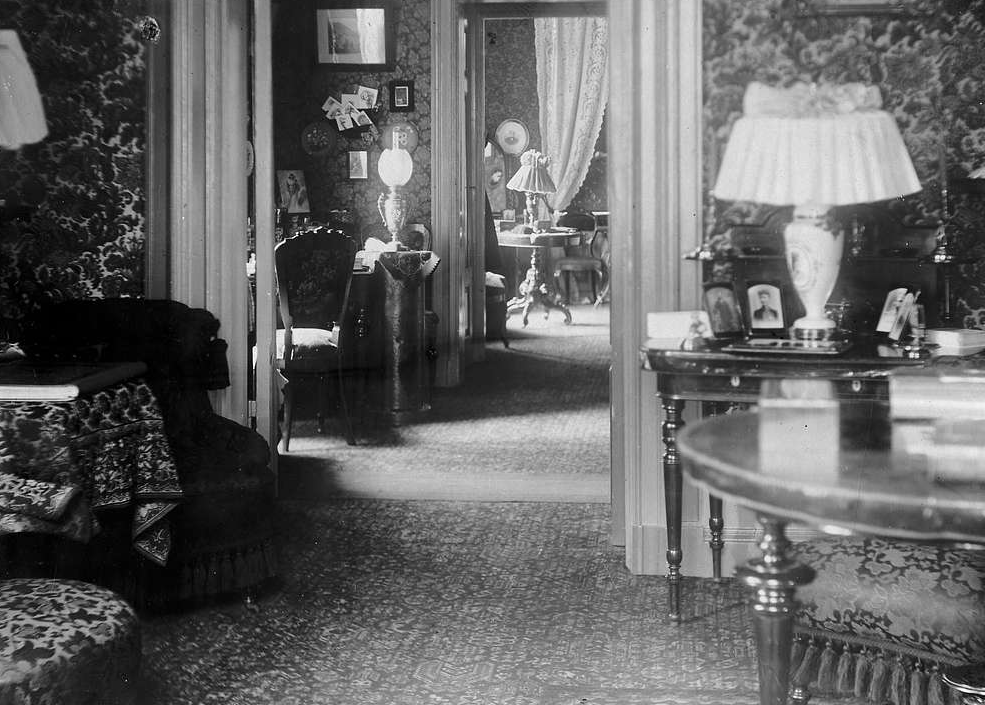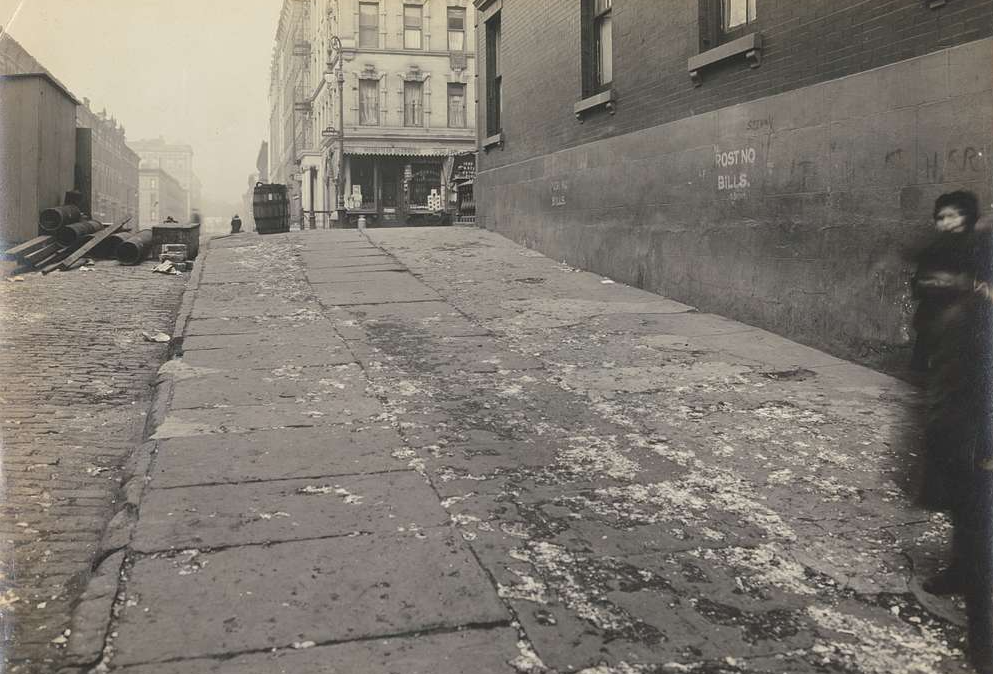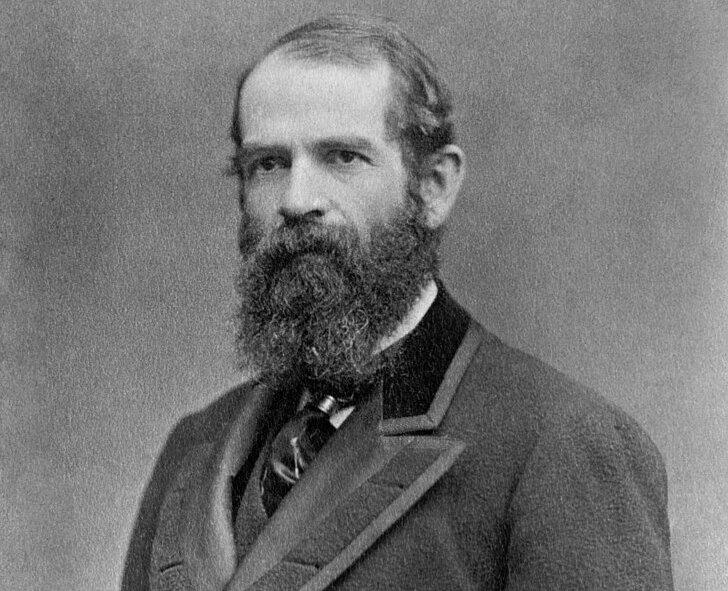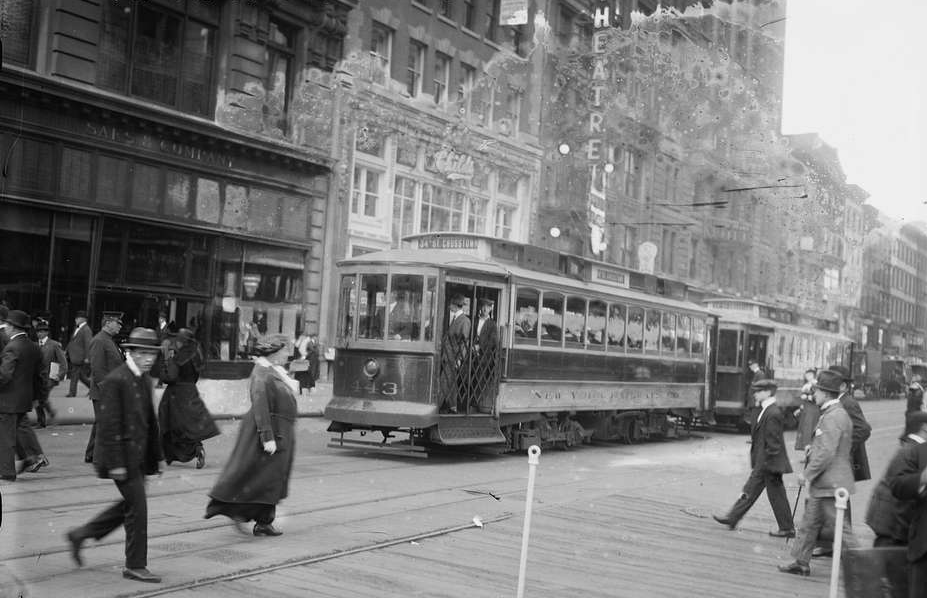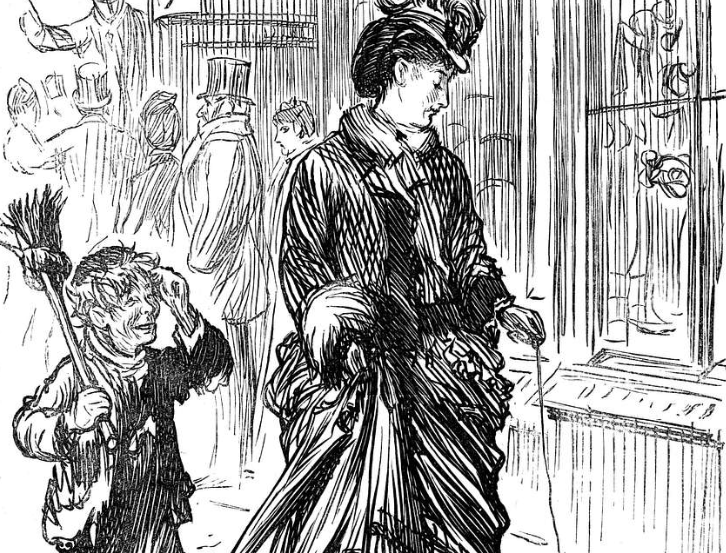1. She Was The Queen Of Wall Street
Even in the opulence of the Gilded Age, almost no one was as wealthy as Hetty Green. The “Queen of Wall Street” was one of the only female financiers of the time, and her sharp tactics turned her into “the richest woman in America”.
But beneath her steely exterior roiled scandals just waiting to erupt.
2. She Was A Whaling Heiress
Hetty Green had unusual, if not humble, beginnings. Born in New Bedford, Massachusetts in 1834, she was the daughter of Edward and Abby Robinson, who were the heads of the wealthiest whaling clan in the city.
Her parents raised her in the Quaker faith, a Protestant sect that generally believes in non-hierarchical structures and simple living, and encouraged a pared-back life despite their wealth. It was a lesson she would never forget.
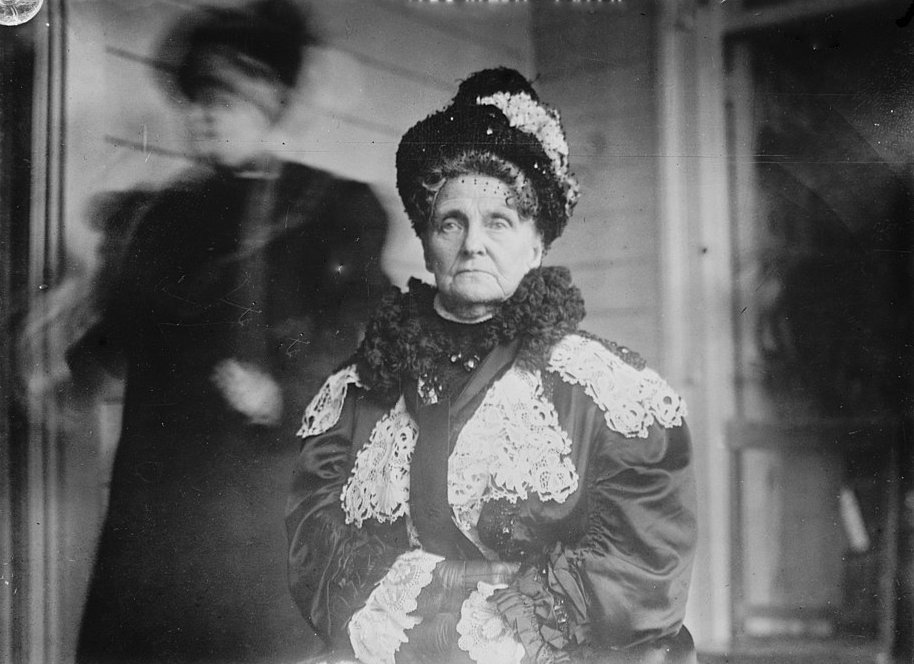 Bain News Service, Wikimedia Commons
Bain News Service, Wikimedia Commons
3. She Was A Prodigy
When she was just two years old, Hetty went to live with her maternal grandfather Gideon Howland as well as her maternal aunt Sylvia Howland. It was here that she began to show a strange aptitude. Even at a tender age, she would read stock reports to her grandfather, and began to understand some of his business acumen.
These skills only got more unbelievable as time went on.
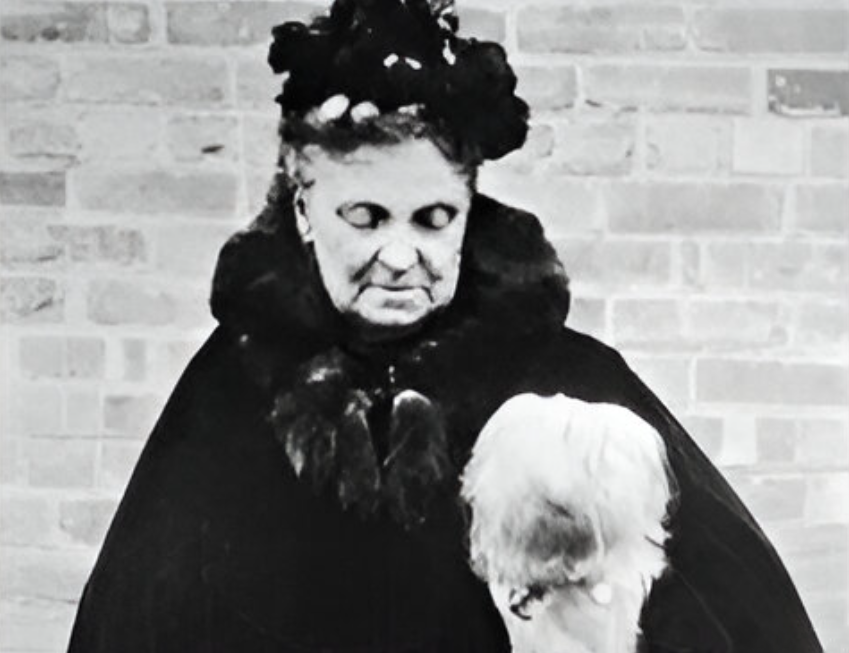 Hulton Archive, Wikimedia Commons
Hulton Archive, Wikimedia Commons
4. She Was A Teenage Math Whiz
After her grandfather’s passing, Hetty went back to live with her father and mother, but she didn’t forget the lessons her grandpa taught her. She now started reading financial reports to her father at just six years old, and quickly learned how to read ledgers. By 13, she was her father’s bookkeeper.
But at least two people had very big problems with this.
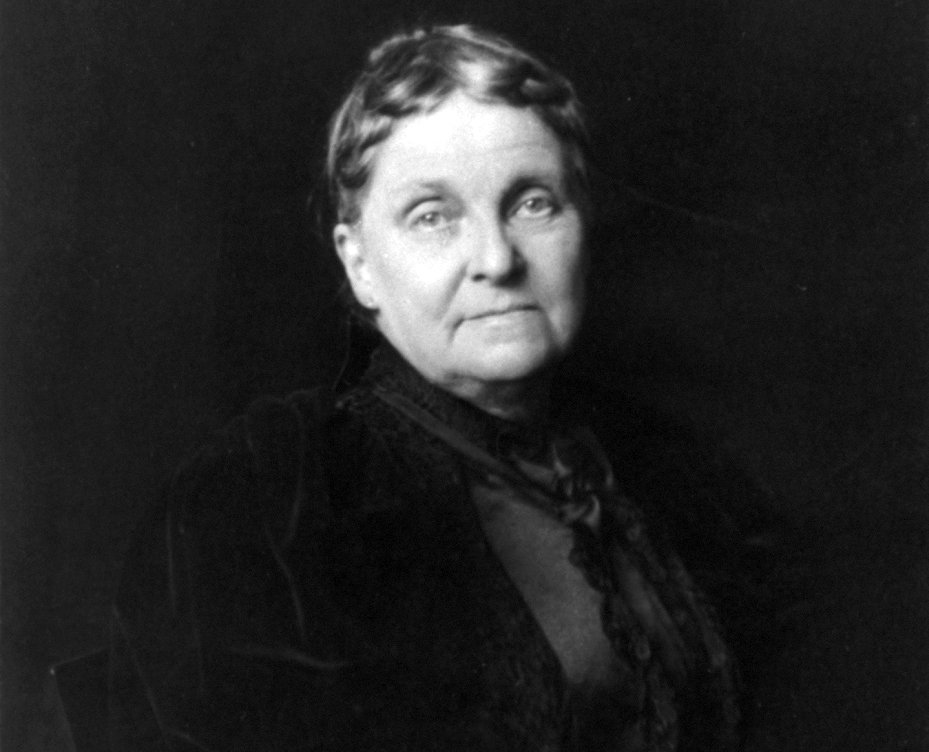 Hollinger & Rockey, Wikimedia Commons
Hollinger & Rockey, Wikimedia Commons
5. The Women In Her Family Worried For Her
In her mother and her aunt Sylvia’s opinion, Hetty’s talents were a curse, not a blessing. It was the very beginnings of the Gilded Age, where adventurous (male) speculators got rich and then paraded around their well-appointed wives and daughters—so Hetty should be wearing the money, not making it.
Hetty’s family worried she didn’t quite understand that. As it turned out, it was worse than they even imagined.
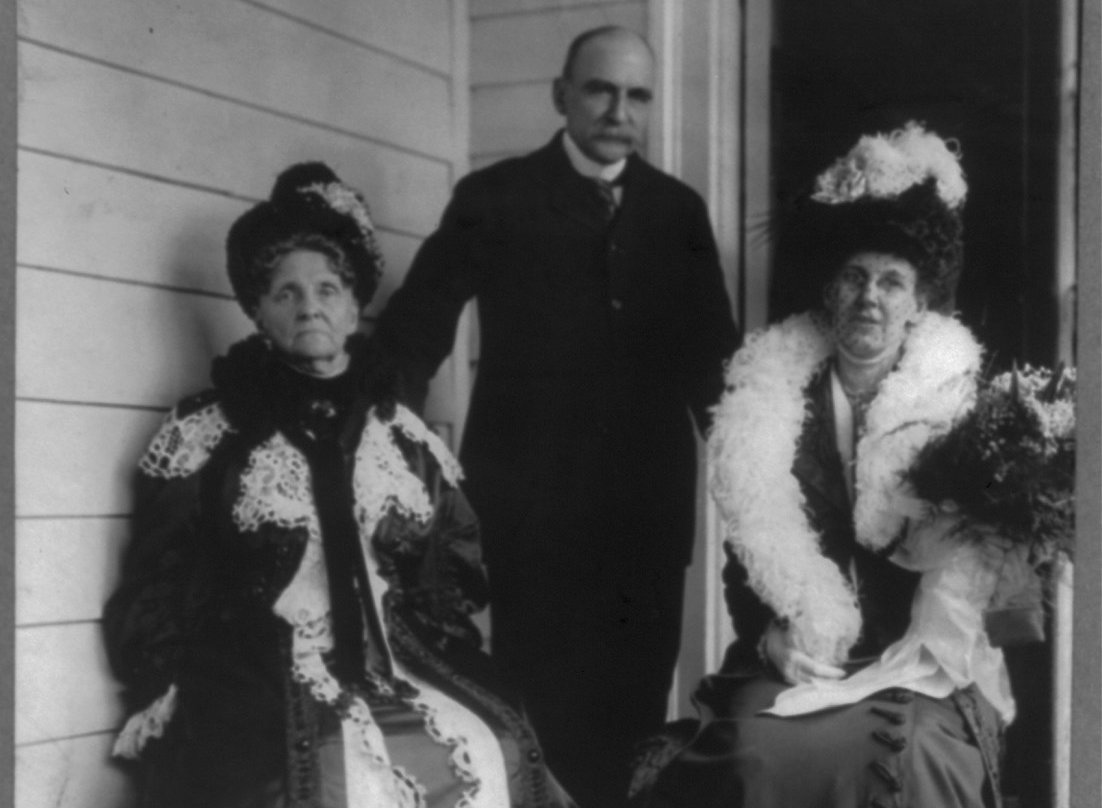 Library of Congress, Wikimedia Commons
Library of Congress, Wikimedia Commons
6. They Tried To Brainwash Her
Growing up, Hetty’s family sent her to a series of finishing schools to help mold her into a “proper” young woman and introduce her to a social circle of other heiresses. It completely backfired. Instead of primping and preening, Hetty went another direction entirely.
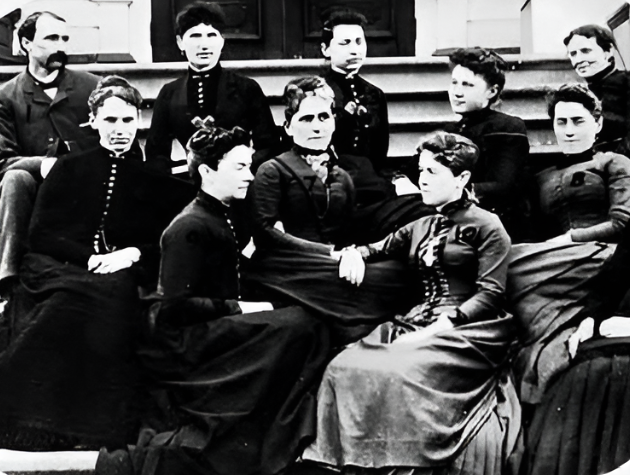 Seattle photographs collection, Picryl
Seattle photographs collection, Picryl
7. She Rebelled
Hetty spent almost no time on her appearance, and regularly dressed in old, shabby, and workaday clothes no matter where she went—and where she went was usually the docks to help her father’s business, rather than to any fashionable destination.
Nearly apoplectic, the women of her family took matters into their own hands.
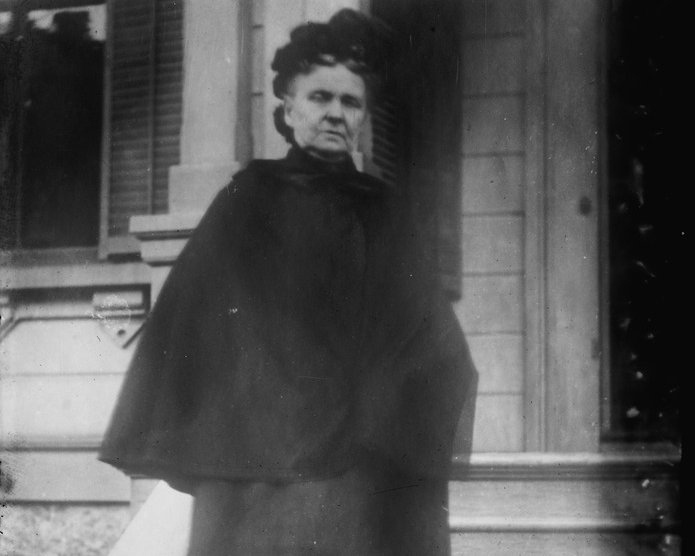 Library of Congress, Wikimedia Commons
Library of Congress, Wikimedia Commons
8. She Went Husband Hunting
When Hetty turned 20 years old, her family forced her hand. Under immense pressure from her Aunt Sylvia to get herself a husband, Hetty reluctantly moved to New York City, posting up with a distant relation while she was there. The idea was that the hustle and bustle of city nightlife would put her in the path of suitors.
Only, Hetty had her own ideas.
9. She Made Her Own Agenda
While in New York, Hetty had no real issue spending time with the Big Apple’s wealthiest and brightest, and made the rounds at many gala evenings. She just wasn’t doing any husband hunting.
Instead, she spent her time eavesdropping on the conversations of Wall Street men to find out the latest financial gossip. Needless to say, it didn’t end well.
10. She Came Home Empty-Fingered
Even as a 20-something, Hetty knew her mind, and she made another surprise move. Sick of the marriage plot, she returned from New York several months earlier than planned, and with no husband in tow. Her mother and aunt were apoplectic, but Hetty had more surprises in store.
11. She Gave Her Father A Surprise
While in New York, Hetty’s family had given her a generous budget of $1,200—but, knowing the worth of a dollar even then, Hetty returned having spent just $200 of the sum. To the delight of her proud father, she then invested the rest in stable bonds.
It was the true beginning of Hetty’s impressive, diligent, and conservative financial career, but it was also the beginning of a period of intense turmoil.
12. Her Family Didn’t Believe In Her
Now an adult, Hetty spent most of her time helping her father in various business ventures in New York—but it still wasn’t good enough for most of her family. Her Aunt Sylvia in particular remained skeptical of Hetty’s talents, and was unsure of how much inheritance to give to her niece in her will.
Meanwhile, Hetty was certain of her Midas touch, and felt she deserved to be the sole beneficiary. It led to a tense feud.
13. She Badgered Her Aunt
Hetty was like a dog with a bone when it came to her aunt and “her” inheritance. Frustrated, Hetty showed a dark side. When she went back to New Bedford from New York now, it was often to keep insisting to Sylvia that she name her as the sole heir and have done with it.
The next tragic events didn’t help matters.
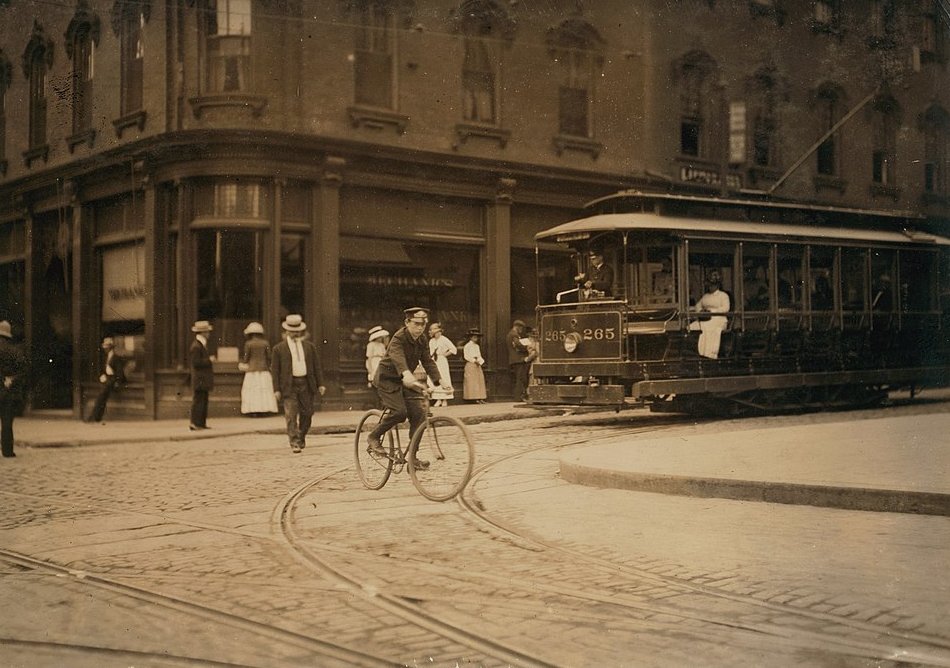 Hine, Lewis Wickes, Wikimedia Commons
Hine, Lewis Wickes, Wikimedia Commons
14. She Lost Her Mother
In the winter of 1860, Hetty experienced her first real loss when her mother passed. Her mother, like Sylvia, had never fully approved of Hetty’s financial-not-feminine priorities, but the loss for Hetty still must have been great.
That loss was even greater when Hetty read the will.
 Caravaggio Magdelene Grieving, Picryl
Caravaggio Magdelene Grieving, Picryl
15. Her Mother Passed Her Over
Hetty’s mother had come from a wealthy family in her own right, and when she passed, she had a good chunk of inheritance to give. So Hetty, who had spent so much time pestering her Aunt Sylvia about money, must have been irked that most of the estate went to her father, although she did get a modest house in the bargain.
Perhaps eager to be away from all this, Hetty made a drastic change no one saw coming.
16. She Met A Man
While in New York after her mother’s passing, Hetty shocked everyone she knew when she met a man she actually wanted to court. Edward Henry Green was a partner in a trading company, and already a millionaire when he met Hetty.
Almost 15 years her senior, it seemed like Edward was to be Hetty’s mentor in the world of Wall Street. Well, that didn’t happen.
17. Her Father Was Suspicious
Hetty’s father had raised no fool, and he was no fool himself. He suggested one rigid stipulation. If the pair married, Edward Green would never inherit Hetty’s money. Or, as the legal language put it, her money was to be “free from the debts, control or interference of any such husband”.
After that, however, Hetty’s father supported the relationship…though he may have had ulterior motives.
18. Her Own Father Didn’t Vouch For Her
At the time, Hetty’s father was increasingly in ill health, and he worried about his daughter being alone. Like most of her family, he also worried about Hetty, or any woman, being able to manage the business without him, and perhaps without the guidance of any man.
He was wrong—but he wouldn’t live to find out.
19. She Had A Desperate Engagement
In May of 1865, Hetty and Edward became officially engaged. It was none too soon: Hetty’s father’s health was evidently falling even further, and they may have done it in fears he would soon pass. Shortly after, he did—and then Hetty found out enraging news.
20. She Got Another Disappointment
When Hetty’s father passed, his will revealed the devastating truth: He officially didn’t trust her ability to manage money. Although she got millions of dollars, she could barely touch any of it. Her father had placed the inheritance in a trust, and Hetty only had access to the interest of the principal.
But her father’s death wasn’t the only tragedy to visit Hetty.
21. She Lost Her Battle
Around this time, Hetty’s Aunt Sylvia—the one who she had been pestering to name her as the sole beneficiary of her will—died as well. Unfortunately, for one of the first times in her life, Hetty had failed in what she set out to do: She was not the sole beneficiary. The news got worse.
22. She Couldn’t Access Her Money
Not only was Hetty not the only beneficiary of the will, but her aunt had dealt her one final insult in death. Just like Hetty’s father, Sylvia left her a significant sum of money, but put it in a trust so that Hetty could get at very little of it.
That’s when Hetty broke down, and went wild.
 Bank of the United States of America, Wikimedia Commons
Bank of the United States of America, Wikimedia Commons
23. She Was Furious
Her father’s will had no doubt annoyed Hetty, but her aunt’s bequeathment—especially after all the badgering Hetty did—truly stung. No one seemed to believe she could take one dollar and make a thousand in her sleep, and Hetty became obsessed with getting her hands on her aunt’s money to prove them wrong.
Before anyone could stop her, Hetty initiated court proceedings to contest Sylvia’s will. It ended in infamy.
24. She Took It To Court
Hetty presented evidence in court, in the form of a signed addendum, that her aunt had actually meant to give nearly her entire estate over to her niece. There was just one massive issue. The executor of Sylvia’s will, Thomas Mandell, insisted that this so-called addendum was really a forgery.
Hetty was in hot water, and the verdict only turned the heat up.
25. She Was Involved In A Forgery Scandal
In front of the whole court, the judge ruled that the addendum was a forgery, casting aspersions on Hetty’s morality in the process. Robinson v Mandell became a black mark on Hetty’s record, and in the end, she only got a relatively small percentage of her aunt’s estate—which was still placed in trust.
Hetty’s public persona was in tatters, but it was her private life that was concerning her now.
26. Her Cousins Wanted To Take Her Down
In the wake of Robinson v Mandell, Hetty’s own family turned on her. Her cousins were incensed with her failed lawsuit, and there were rumblings that they would try to have her indicted for forgery based on the results of the case. Panicked, Hetty changed her life almost overnight.
27. She Fled The Country
With her family breathing down her back, Hetty made a series of life-altering decisions. First, she and Edward Green married in the summer of 1867—and then the newlyweds took off almost immediately to London, England, hoping it would allow them to escape the pressure building at home.
But Hetty didn’t just breathe a sigh of relief once she was overseas. She made herself a star.
28. She Got To Work
In England, with or without the full wealth of her father and aunt, Hetty rolled up her sleeves and got to work investing—and investing brilliantly. Her strategy was generally to buy low and sell high, which she said was “the secret of all successful business”.
In this way, she used the measly interest she was getting from her father’s trust…and finally showed up her doubters.
29. She Made Loads Of Money
By the end of Hetty’s first year in London, she made a yearly profit of $1.25 million—and was raking in money to the tune of $200,000 per day. She did it all with careful, considered investing, never going in for risky speculation. Through this, she began to get the recognition she deserved for the financial talents she knew she had all along.
Unfortunately, someone was still bringing her down.
30. She Started A Family
By the 1870s, Hetty and Edward had two children together, a son named Ned and a girl they called Sylvia. But as their family grew, so too did their troubles. Hetty’s husband proved to be much less adept than his wife in money matters, and he began to accrue a staggering number of losses.
For Hetty, this meant it was time for another change.
31. She Hated Her Mother-In-Law
In 1873, with her children still young, Hetty moved the family back to the United States, settling in Edward’s hometown in Vermont. It was supposed to be a fresh start, but it ended up as a fresh nightmare.
Hetty found herself at odds with Edward’s mother, now always at hand, and fought with her constantly until the older woman passed in 1875. Even then, the Green name kept bringing Hetty pain.
32. Her Husband Was A Disappointment
The very same year Hetty’s mother-in-law died, her husband began truly falling apart. Edward now had massive losses from his work as a director of the London and San Francisco bank, so much so that Hetty had to cover his financial obligations. In 1884, she had to do it again.
At that point, the situation turned catastrophic.
33. He Was In Massive Debt
In 1885, Edward was working at the finance house of John J Cisco & Son when the bank collapsed—and then the nasty truth emerged. Edward had found himself in debt yet again, this time for the mind-boggling sum of $700,000. Now, though, Hetty found herself right in the middle of the mess.
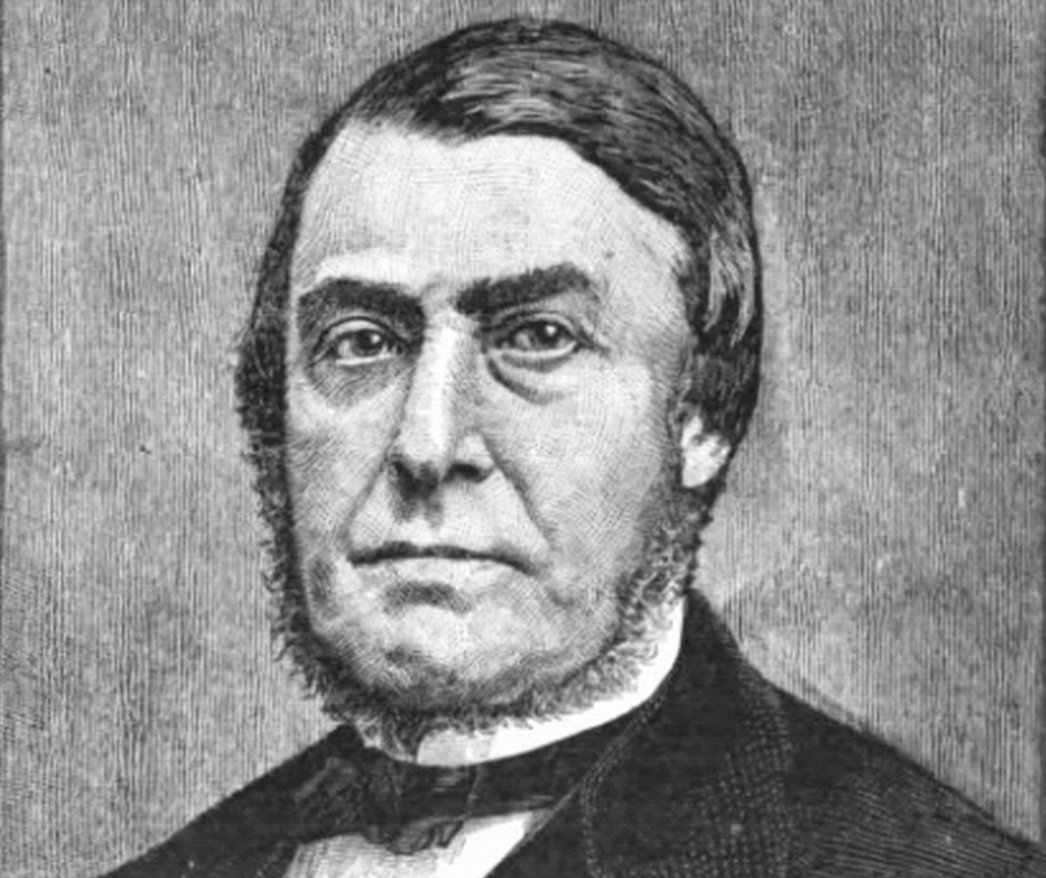 Martha J. Lamb, Wikimedia Commons
Martha J. Lamb, Wikimedia Commons
34. She Saved Him—At A Cost
Hetty also had assets in Cisco & Son; her own personal $500,000 there was a full quarter of the bank’s holdings. But when she tried to transfer this money out in the wake of the collapse, the bank refused to let her until she settled Edward’s debt.
It drove her to a decision that ruined her marriage.
35. She Never Forgave Him
Hetty realized she had to pay off Edward’s debt one more time, but it was the final straw. After years of people telling her a woman couldn’t work finances, Hetty had now bailed her own once-wealthy husband out again and again, and she’d had enough.
After she made the transfer, she never forgave Edward for his shoddy practices. Meanwhile, though, her own name was on the rise.
36. She Earned A Nickname
By this point, even with the shadow of her husband’s bad debts looming over her, Hetty’s steady, reliable reputation preceded her, and people began calling her “The Queen of Wall Street”. She likewise championed the idea of women in finance, once saying, "It is the duty of every woman, I believe, to learn to take care of her own business affairs”.
But she was also getting a more eccentric reputation.
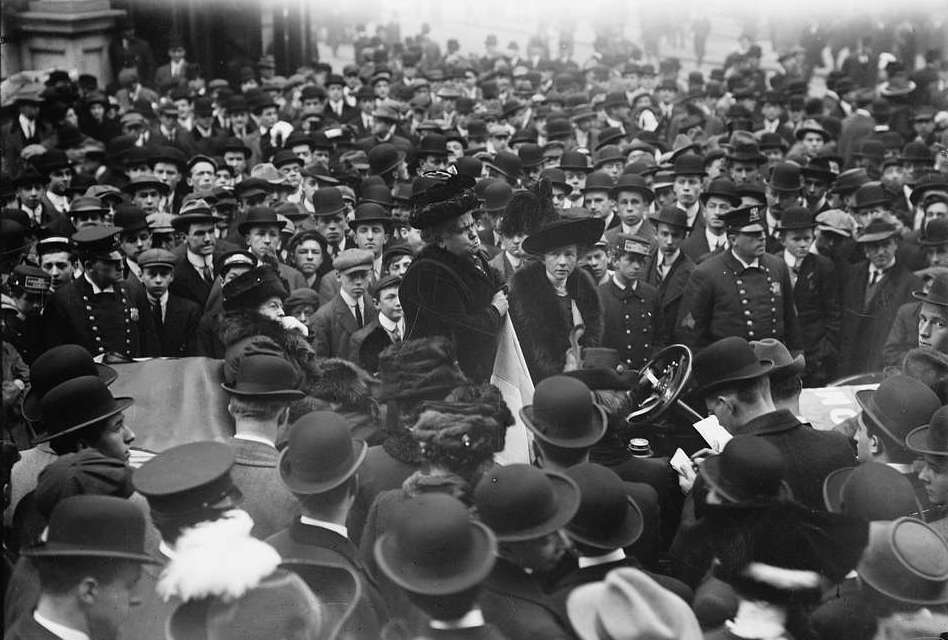 George Grantham Bain Collection, Picryl
George Grantham Bain Collection, Picryl
37. She Was Intensely Frugal
Hetty may have been able to spin straw into gold, but she was no big spender. Although she paid for an office to work in at the Chemical Bank, she spent her nights with her family in modest surroundings like boarding houses and flats, preferring to keep her money rather than spend it conspicuously. But stranger rumors abounded.
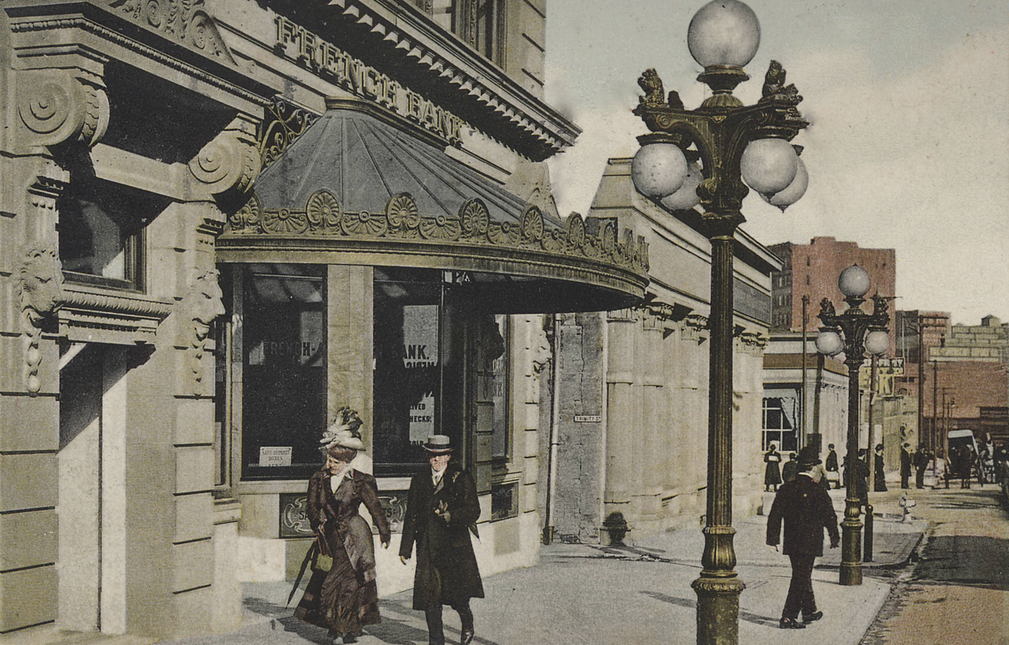 Pacific Novelty Company, Picryl
Pacific Novelty Company, Picryl
38. She Was Out Of Step With The Times
In a Gilded Age full of excess and gowns, Hetty’s thrift stuck out like a sore thumb—and some resented it. The press began to print antagonistic articles that claimed Hetty was so miserly, she refused to turn on the heat or even use hot water in her house. But that was the least of the whispers.
39. She Could Be Miserly
According to these stories, Hetty also only wore a single black dress every day, usually only washing its hem—so as not to waste soap—and replacing it only when it was entirely threadbare. To be fair, there was truth to these rumors: Hetty was extremely conscious of her spending and her lending, and would often travel miles, alone, to collect a small amount of debt.
Yet the darkest rumor hit at the very heart of Hetty’s happiness.
40. Her Son Was In Trouble
In the wake of her husband’s many failings and then his passing in 1902, Hetty turned more and more to her children, growing—as we’ll see—fiercely protective of them. But one day, a mother’s worst nightmare occurred. Her son injured his leg, and eventually had to have it amputated.
When the press got wind of this, they went rabid.
41. The Press Spread Horrible Rumors
According to the Gilded Ones who sneered at Hetty’s frugality, she was the author of her son’s misfortune—all because she had been too miserly to take him to a doctor. Yet evidence shows that Hetty fully opened her coffers to treat her son, and even moved residences to better accommodate his injury, to no avail.
Little did Hetty’s haters know, their Gilded Age was coming to an official end.
42. She Predicted Doom
At the turn of the century, optimism was still running rampant about the amount of wealth one man (and they were mostly men) could produce, and brash speculators like Jay Gould and Jim Fisk remained the heroes of the day. Hetty, as usual, stepped to the beat of a different drum.
In the early 1900s, she began warning that speculation with little cash to back it up—the ethos of the Gilded Age—was a dangerous prospect, and that banks were due to fail. Few listened…until she was proven right.
43. She Watched Her World Burn
In 1907, Hetty’s predictions came gruesomely true. The Panic of 1907, where banks across the nation faltered and failed from a lack of cash liquidity and too much speculation, unfolded almost exactly as she had predicted.
As the banks fell, they took many of Hetty’s harshest critics with them—but, as with her husband Edward, Hetty couldn’t stand by and do nothing.
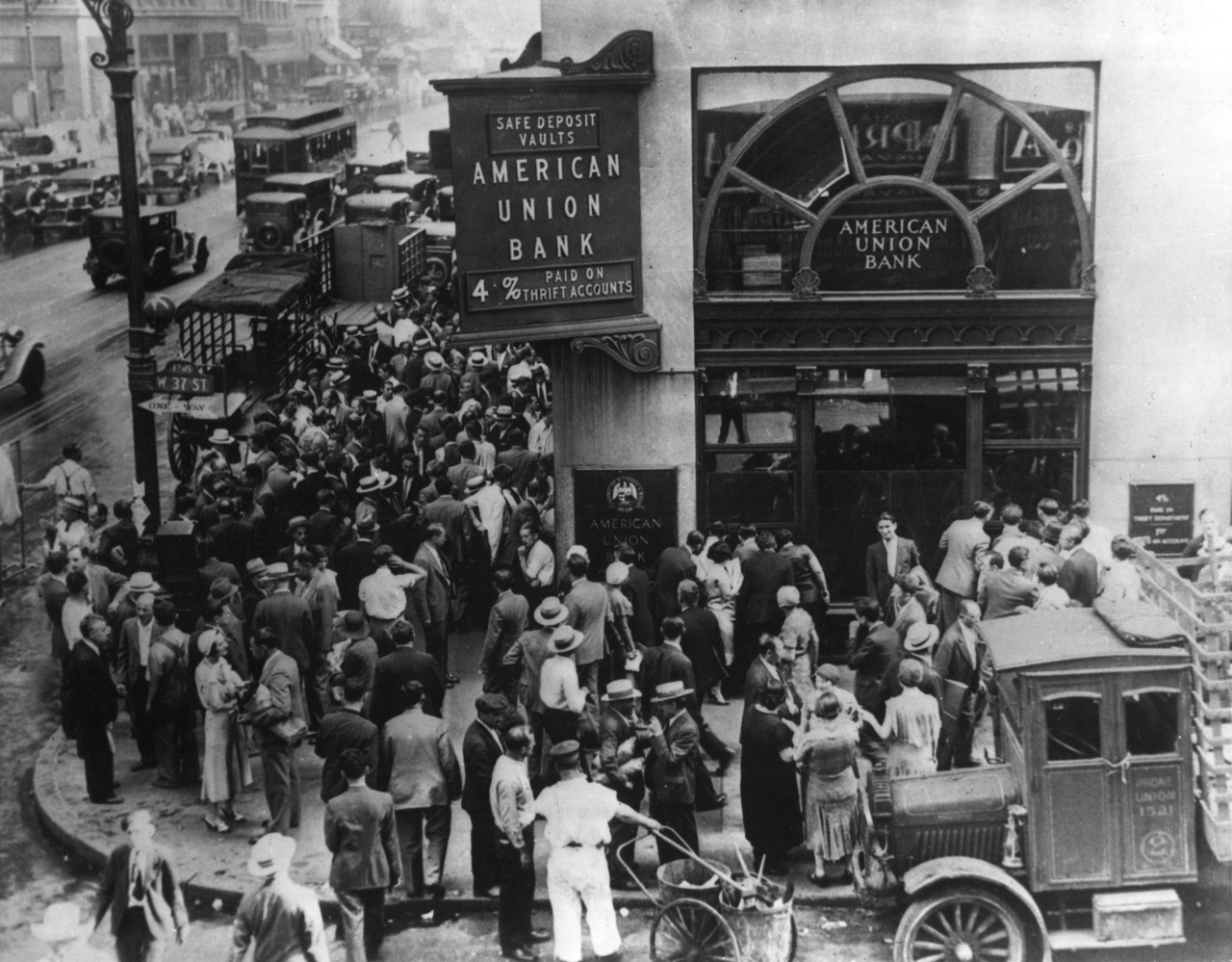 National Archives Photo, Wikimedia Commons
National Archives Photo, Wikimedia Commons
44. She Lent A Hand
Knowing this day was coming, Hetty had shored up an immense amount of cash assets, and she now lent out much of it to help financiers through the Panic. It was no surprise, then, when banking magnate J Pierpont Morgan invited her to his expert roundtable meetings about the crisis—even though Hetty was the only woman in the room.
Hetty was obviously an ace at financial matters, but she now began to stumble in motherhood.
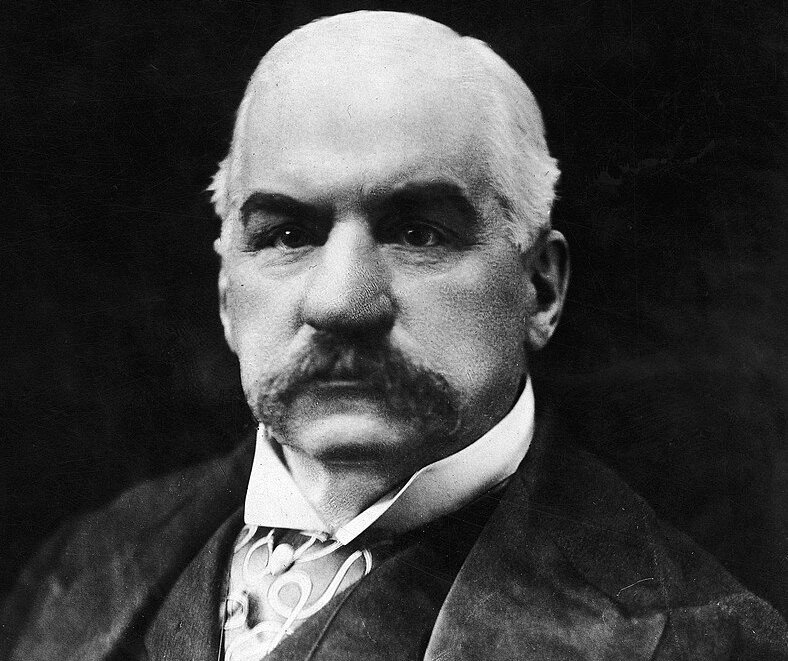 Library of Congress, Wikimedia Commons
Library of Congress, Wikimedia Commons
45. No One Was Good Enough For Her
Although Hetty’s son Ned moved away and managed family business Chicago and Texas, her daughter Sylvia lived with her mother until she was in her 30s. There was a disturbing reason for this. Although Sylvia had many suitors, Hetty would abide by almost none of them, thinking they were only gold-diggers after the family fortune.
It took a very agreeable offer for her to finally give Sylvia away.
46. Her Daughter Married An Astor
In 1909, Sylvia married Matthew Astor Wilks, one of the heirs to the grand Astor fortune, after courting him for two years. As Matthew was an Astor, it was impossible for Hetty to call him a gold-digger—but she did still fiercely protect her daughter and her money. Just like her own father had done for her, Hetty insisted that the groom sign a prenuptial agreement giving up his rights to inherit Sylvia’s family money.
If this was “miserly” of Hetty, it was certainly for a good cause. But as she got older, this trait became more and more concerning.
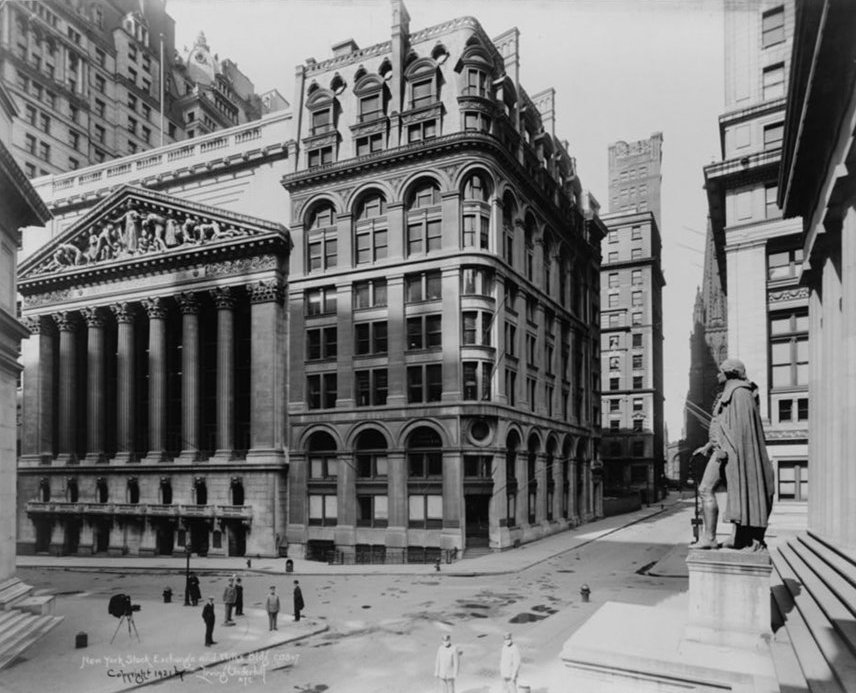 Underhill, Irving, Wikimedia Commons
Underhill, Irving, Wikimedia Commons
47. She Suffered To Save
Although Hetty had never neglected her son to the point of an amputation, she did begin to neglect herself if it could save a little money. At one point, the elderly Hetty got a hernia, but refused an operation. Her home-grown “treatment” was ghastly. She would instead use a stick to tamp down the swelling whenever it bothered her.
Her paranoia also grew.
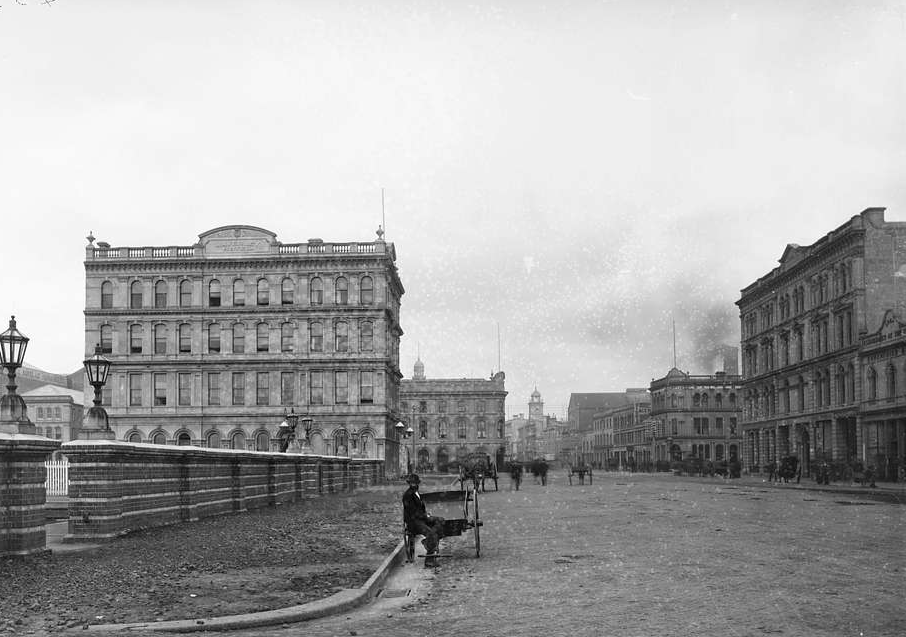 Burton Brothers Studio, Picryl
Burton Brothers Studio, Picryl
48. She Thought She Was Being Poisoned
Hetty had spent a long while at the Chemical Bank, and when she eventually left it was not for the usual reasons. Instead, she irrationally believed she had been poisoned there—a phobia that popped up throughout her life—and so moved her office to the National Park Bank to get away from the “threat”.
Her end, however, was steeped in more gossip and rumors.
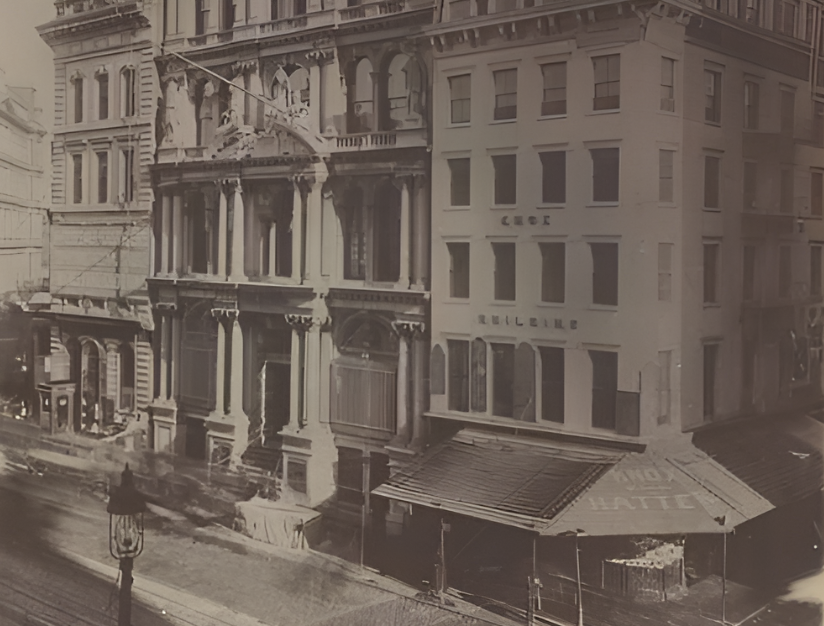 New York Public Library, Picryl
New York Public Library, Picryl
49. She Was Fighting To The Very End
On July 3, 1916, The New York Times reported that the 81-year-old Hetty Green had passed on in her New York City home after a series of strokes. But another suggested possibility was bizarre. According to the Guinness Book of World Records, she suffered from a fatal apoplectic fit…after fighting with her maid about her preference for skimmed milk.
50. She Was A Modern Billionaire
By the time Hetty Green passed, the world now called her the “Wizard of Finance” and “The Richest Woman in America”, even if others identified her as the Scrooge-like “Witch of Wall Street”.
In the end, though, they could talk all they wanted; Hetty Green walked the walk. At her death, she was worth up to $200 million, equivalent to over $5 billion in today’s money.
You May Also Like:
Wall Street’s Slimiest Scandals
The Titanic’s Wealthiest Widow
The Astors: The Rise And Fall Of America’s Richest Family

